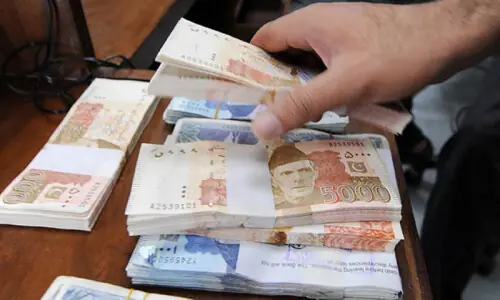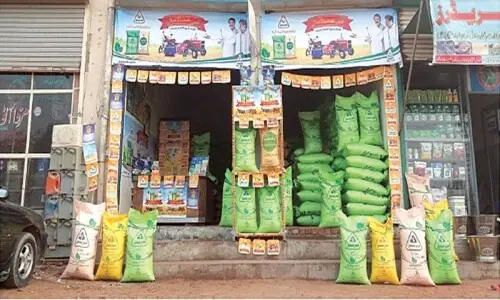Some poets are known for their contribution to a genre. They popularise a genre so much that it gets a new lease of life.
Mirza Rafi Sauda's contributions to qaseeda and hajv , for instance, enriched the genres in such a way that these genres, usually looked down upon these days, have some respect in the eyes of critics as the technical and linguistic merits of Sauda's qaseedas and hajvs are immense.
Mir Anees and Dabeer took marsia to such a pinnacle of glory that today their marsias make an invaluable part of Urdu's classical poetry and, one feels, they must be included in any selection of Urdu's choicest of verses.
Similarly, Iqbal gave a new vigour and a different vision to Urdu ghazal that ensured its survival in the decades to come though before Iqbal ghazal was a genre much criticised for its typical themes, limited imagery and peculiar vocabulary.
But it is very rare that a poet pioneers a genre and makes it such a smashing success that it becomes an integral part of daily newspapers. The poet was Raees Amrohvi and the genre was political qata-nigari or qata-writing. So what is a qata or qita ? Though many Urdu dictionaries validate the pronunciation 'qata', in Arabic it is 'qita'. Derived from an Arabic root, 'qata' means a piece, a cutting or a segment. Qata was, initially, an intra-connected portion or a detached segment of a ghazal or qaseeda that could as well be read independent of the original work. Later, it developed as an independent genre of Urdu poetry. Some poets began giving a title to it, too, and now Urdu qata is quite different from its Persian and Arabic prototypes.
Another interesting development was the use of qata for humour or political satire. The contributors of 'Oudh Punch', an Urdu humour magazine launched from Lucknow in 1877, were the first to use qata for the purposes but Zafar Ali Khan perfected the art of politico-satirical qata . Yet another development was reducing qata to just four lines and making it a succinct and subtle weapon for political satire or recording the events of everyday life and getting it published in dailies. Most prominent among the poets who began composing a four-line, political, satirical qata for a daily was Raees Amrohvi. There have been some other poets too, of course, who contributed towards developing and popularising the new qata but Raees Sahib has the distinction of composing and publishing a qata everyday for over 40 years and in fact it was him who made a four-line qata on current affairs a must for Urdu dailies. His peers include Vaqar Ambalvi who wrote a qata everyday for the daily, Nawa-e-Waqt, for over 30 years and Abdur Rauf Urooj who wrote a qata for 'Hurriyet' for about 30 years.
Raees Sahib's qatas were an instant, succinct and extempore reaction towards the events taking place in the country or elsewhere in the world. Whether it was a political issue or a social trend, an economic problem or a new scientific invention, be it a historic event or a natural disaster, whether it concerned education or it was a moral problem, Raees Sahib captured its essence in four lines and made it a food-for-thought kind of piece. All the major events of Pakistan's history since 1947 are preserved in Raees Sahib's qatas with a pungent commentary that makes you laugh and ponder over some bitter facts at the same time. If put together in the sequence they were published in, Raees Sahib's qatas would serve as the signposts of Pakistan's history and tell-tale signs of our social, economic and political ills. Luckily, his qatas were published in four volumes in his lifetime and his collected poetic works were published in one volume posthumously.
Raees Amrohvi was a journalist, poet, prose-writer, social worker and a practitioner of occult science and parapsychology.
Born Syed Mohammad Mehdi into a well-known family of scholars and poets of Amroha on Sept 12, 1914, Raees Amrohvi had a long journalistic career that goes back to his early stints with some magazines and newspapers in late-1930s and early-1940s. For instance, he edited monthly 'Musafir' in 1939 and later daily 'Jiddat'. Moving from Muradabad to Delhi in 1945, Raees Sahib joined monthly 'Mashhoor' and later worked as editorial staff for daily 'Ansari'. His brother Syed Mohammad Taqi had joined 'Jang', Delhi, as editor and it was decided that Raees Sahib would go to Karachi and launch Jang's Karachi edition. Raees Sahib reached Karachi in October 1947 and joined 'Jang', working for the newspaper for the rest of his life. Later, his brother Taqi Sahib, too, came to Pakistan and joined Jang. Though Raees Sahib had begun writing qatas in June 1947, for Jang he began composing qata s from January 1948 and wrote a qata daily till he breathed his last on Sept 22, 1988.
Another aspect of Raees Amrohvi's creative writing was his columns. Aside from his humorous and satirical columns that appeared under the title 'Nazre khush guzre' and 'Dekhta chala gaya', his columns on psychology, parapsychology, spirituality and occult sciences were hugely popular. Published in 'Aalami Digest' and 'Jang', these columns appealed to a large section of readers who would write him letters and seek his advice or share their views. At the height of the popularity of these columns, the number of letters he received in mail was in hundreds every month.
He also wrote some short stories but more popular was a series of his short stories based on a character, Hakeem Buddhan, written for a digest. Another character of his was 'Achche Mirza', presented through humorous writings.
Drama was another domain of Raees Sahib.
Yet another field in which he proved his mettle was song-writing. Raees Sahib's national songs, especially the ones written during the 1965 and 1971 wars, were widely acclaimed. His social work and service to the society at large need a separate account.
Raees Sahib penned over 50 books.
This multi-faceted personality died when unidentified assailants murdered him at his home. It is commonly believed that Raees Sahib had become a victim of religious differences, which is surprising because he did not believe in religious fanaticism and always preached non-violence.
Raees Amrohvi left his indelible marks on Urdu poetry and journalism and one can see these marks every day, almost in every newspaper of the country, in the shape of qatas that capture the social and political atmosphere in four lines.
drraufparekh@yahoo.com





























